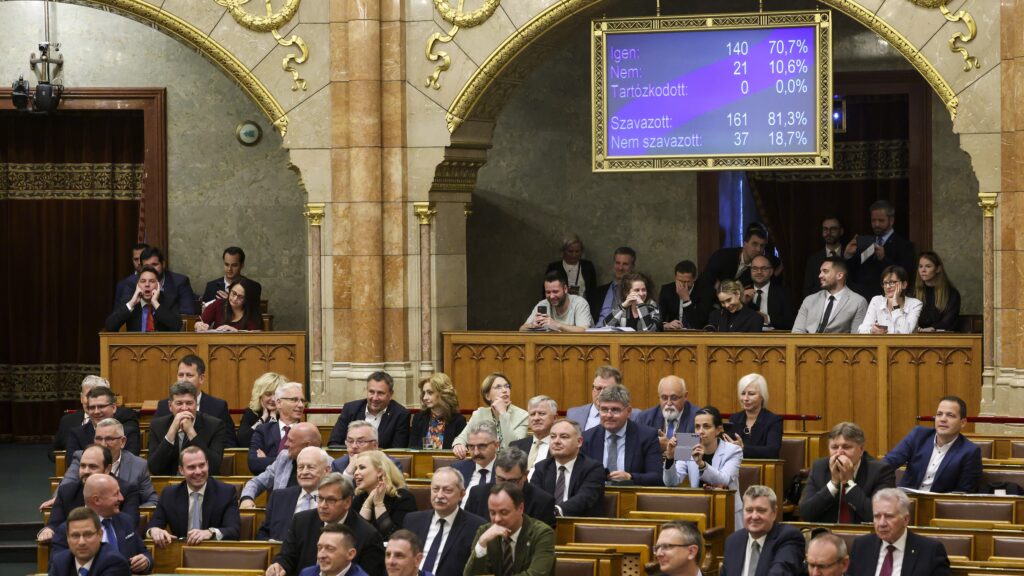The application of law inevitably presupposes interpretation. This is because relating the abstract, general level of the legal text to the concrete characteristics of the facts requires that we interpret the facts of the case in the light of the case and interpret the case in the light of the legal facts. Legal thinkers have grappled with the question of legal interpretation for centuries. The questions that have been raised in the process are not only of interest in the world of theory, but also in practical legal life. Sometimes, they even affect politics. And it is precisely for this reason that it is worth taking a look at the views of those politicians and lawyers, critical of the current government, who argue that the constitution can be amended by a simple majority in parliament. They insist that this is the case despite being well aware that the constitution can only be amended by a two-thirds majority.
Among those who developed the methodology of interpretation of the law, 19th century legal scholar Friedrich Carl von Savigny stands out. His theory can be described as classic: he defined linguistic, logical, taxonomic and historical interpretations as being used simultaneously. This idea has since been modified and complemented, e.g. by the introduction of the concepts of objective interpretation (aiming to determine the meaning of the text of the law) and subjective interpretation (focusing on the intention of the legislator). The most important lesson from Savigny is that no new law can be created through interpretation, only through the reinterpretation of an existing law.
The negative potential of legal interpretation is best demonstrated by what happened in National Socialist Germany
The negative potential of legal interpretation is best demonstrated by what happened in National Socialist Germany. As Bernd Rüthers convincingly argued in his influential book Die unbegrenzte Auslegung (8th edition, 2017), Nazi law was fundamentally created not by legislation, but by interpretation. It is important to note that legal interpretation provides the opportunity to turn a legal system into its opposite. This can be achieved by redefining the content of the so-called general clauses, a practice which then permeates legal texts without any changes to the law. The fact that in National Socialist Germany the Weimar Constitution was in fact never repealed is proof of this trend. In Nazi Germany there was no need to change the law, since a new law, a law imbued with a racial perspective, was created by reinterpreting the former in a political-globalist way. Rüthers’ analysis thus also showed that legal interpretation can only serve the application of the law within certain limits, and when it goes beyond those limits, it opens the way for barbaric politics.
Why is all this relevant in today’s Hungary? To understand it, we need to take a look at the attempts to create a new constitution (by repealing or amending the current Basic Law) by a simple majority. Of course, these attempts cannot be compared with the phenomenon analysed by Rüthers, but we can see the limits that it crosses in the interpretation of the law.
The Constitution and other laws are passed by parliament and set the framework for the legal life of a society. As opposed to that, the interpretation of laws may be done by law practitioners (typically judges) or by legal scholars, with the interpretations of the latter having no legal force per se, and may at most influence the law practitioners.
Let me refer back to Savigny’s statement: no new law can be created by interpretation. Contrary to that principle, the endeavour I described above creates a new kind of law, namely the creation of a constitution by a simple majority, as opposed to the two-thirds majority requirement laid down in our legal system. What is behind this effort is the political conviction that the constitution is not valid in public law (i.e. it is illegitimate). However, if the Basic Law is considered illegitimate, then the law which determines the electoral order on the basis of this Basic Law is also illegitimate. The conclusion that can be drawn is simple: the participation in parliament of political forces with a simple a majority is also illegitimate. The legitimacy of the interpreters themselves is therefore called into question. The only way out of such an impasse is revolutionary violence, but hopefully this will not be part of the political toolbox of radical interpreters.
The idea that a simple majority can be constitutionalised is either just political talk or the harbinger of political chaos. In any case, it is wrong to experiment with it.








